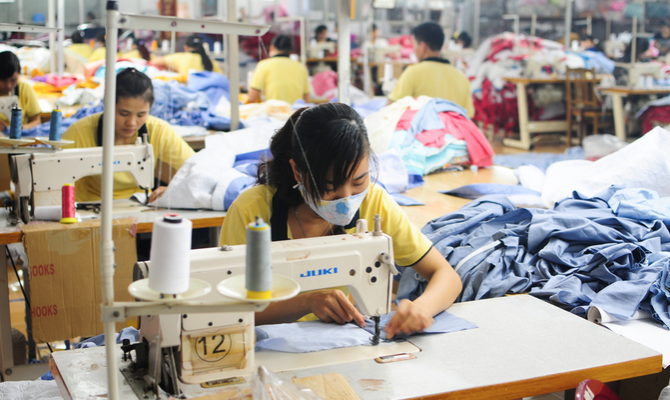Papertale: new technology lets consumers choose sustainable future
PaperTale is a new Swedish blockchain platform that makes it possible for consumers to scan a product with their smartphone and get on the spot authenticated information about the supply chain and the product's environmental impact

If you like something but want to know if it's eco and ethical before buying, then PaperTale is here to help. Launching a crowdfunding campaign on kickstarter on November 13, this Swedish company has developed a platform that gives consumers access to the information they need to make sure they're buying products with high environmental and social welfare standards.
The new Swedish blockchain platform PaperTale aims to empower consumers to drive a sustainable economy. As well as letting you see information about a product's environmental impact, it also shows informatoin about the workers in the factory who made the product, whether they're paid the salaries deemed acceptable in their country and you can even interact with them and pay a tip should you want to. Consumers will have the power to make informed decisions about what they buy and this could strengthen companies that choose to work sustainably.
Consumer trust crisis
According to the 2019 Edelman Trust Barometer Special Report: In Brands We Trust, only 34 per cent of respondents said they trust most of the brands they buy or use. The figure has dropped steadily from 2012 (47 per cent) when the survey began.
Through advertising, news and other information, it's becomeincreasingly difficult to assess the truth of all claims made. Legislation and various forms of certifications have sought to force more sustainable production and reduced environmental impact. However, there 's evidence that certifications often do not lead to any actual change in manufacturing techniques, but are instead just a tool for 'greenwashing'. Consumers are relying less on companies' claims, since there’s no way for consumers to verify what they say is true. This is where PaperTale comes into play.
Blockchain future
PaperTale has developed a technology which allows consumers to verify the claims made by companies. It enables traceability throughout the production process and has a built-in “Environmental Calculator” which shows a product's environmental impact, based on production methods and materials used.
The platform shows basic information about the employees behind the products and confirms whether the workers receive mandated salaries and if they have written employment contracts. A large number of people in developing countries work under slave-like conditions with below minimum wages and never get the chance to receive education for themselves or their children. However, PaperTale founder Bilal Bhatti says the West can and must change this: 'If we recognized and nourished the competence of the developing countries, we might have already visited Mars.'
With PaperTale technology, there’s a possibility for consumers to interact with the people who produce our products. The platform also gives consumers the opportunity to send tips to the workers or make contributions via crowdfunding to educate their children. 'Imagine having the opportunity to give a small tip to the person who made your favorite product,' says Bhatti.
With the PaperTale platform, every step in the production, i.e. material, source, work etcetera, is verified through the Blockchain. Once information is put into a block, it cannot be re-written, amended or deleted. So companies that sign up to PaperTale are those that will want to be truthful and transparent. All transactions, such as donations or tip, can be tracked so the giver knows it's been transferred directly to the intended recipient.
PaperTale's 'Proof of Concept'
After two years' development, the platform is ready to be tried and tested. As a Proof of Concept, PaperTale has implemented the technology in a textile factory in Pakistan, where all clothes are now manufactured with the new technology.
A crowdfunding campaign on Kickstarter starts on 13 November, and the aim is to raise at around £100,000. Everyone who supports it will receive one of the first products produced with the new technology. 'We are working for true sustainability, environmental consideration and better working conditions,' says Bhatti.